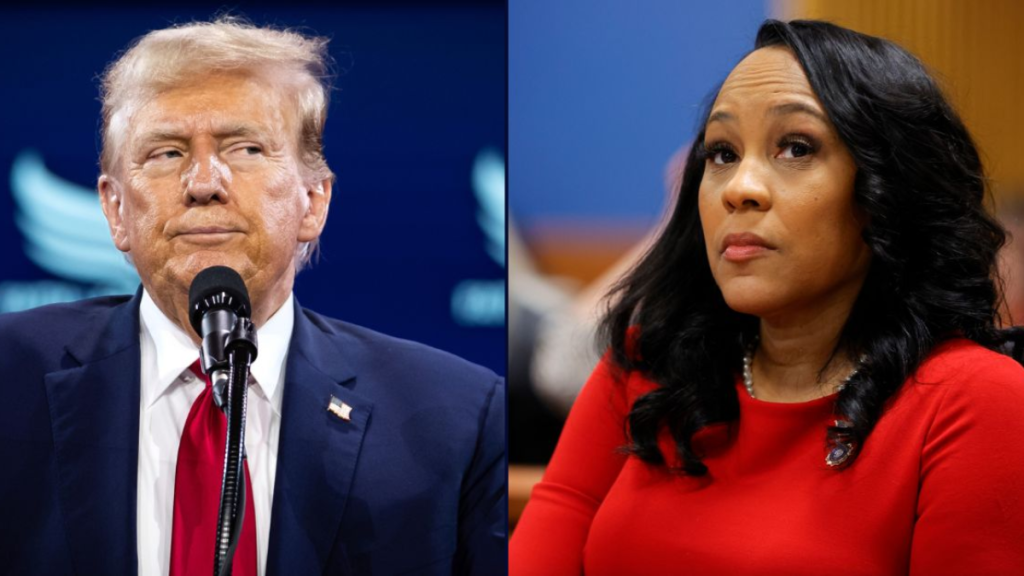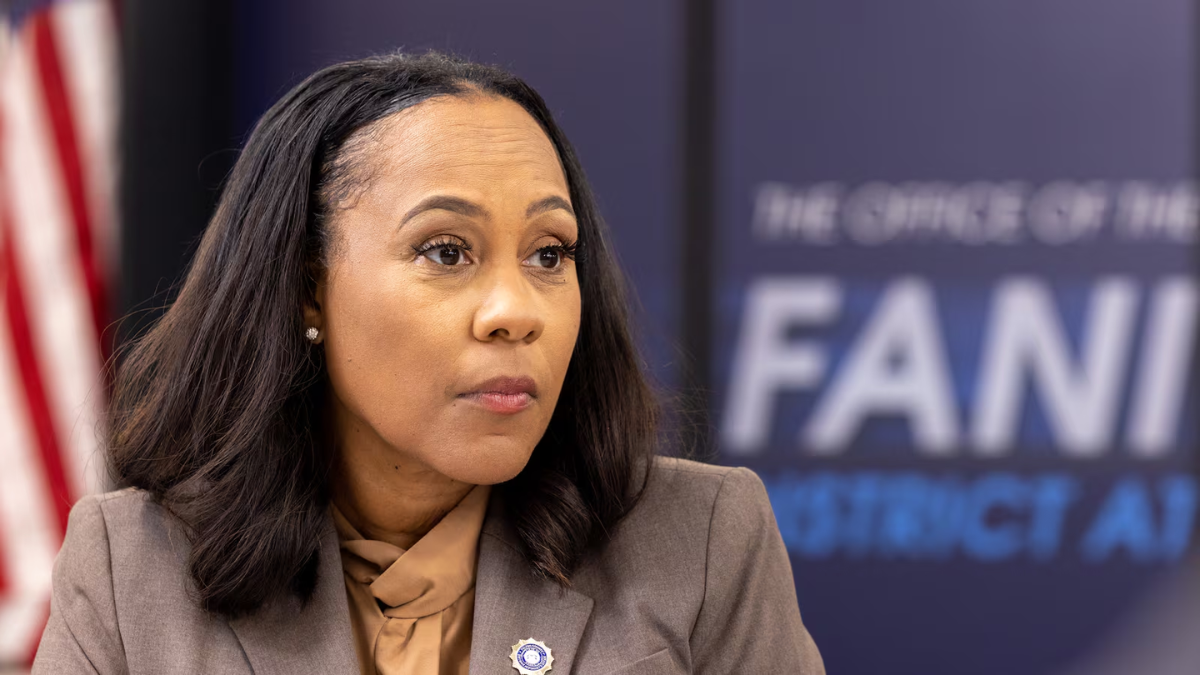A Georgia judge has ordered Fulton County District Attorney Fani Willis to pay attorneys’ fees after ruling that her office “intentionally” violated the state’s open records laws in the Trump RICO case. The decision comes as Willis faces mounting scrutiny over her handling of the high-profile prosecution involving former President Donald Trump and his alleged efforts to overturn the 2020 election results in Georgia.
Legal Battle Over Public Records Requests
The ruling stems from a lawsuit filed by attorney Ashleigh Merchant, who represents one of Trump’s co-defendants in the racketeering case. Merchant had requested records related to Willis’ hiring of Nathan Wade, a special prosecutor assisting in the case. However, Willis’ office failed to comply with Georgia’s Open Records Act, prompting legal action.
Judge Scott McAfee, who is overseeing the Trump RICO case, determined that Willis’ office had engaged in “substantially groundless and vexatious” conduct by withholding documents that should have been made available. As a result, McAfee ordered the Fulton County District Attorney’s Office to cover the attorneys’ fees incurred by Merchant during her pursuit of the records.
The Controversy Surrounding Fani Willis and Nathan Wade
The records at the center of the dispute concern Willis’ relationship with special prosecutor Nathan Wade. Merchant alleged that Willis improperly hired Wade and that the two were involved in a personal relationship that could present a conflict of interest in the Trump case.
Willis has denied any wrongdoing, but the controversy has fueled criticism from Trump’s legal team and Republican lawmakers.
The allegations against Willis have become a focal point in Trump’s defense strategy, with his attorneys arguing that the case against him is politically motivated. Trump and several co-defendants have sought to disqualify Willis from prosecuting the case, citing potential ethical violations related to her hiring of Wade.
Judge’s Strong Rebuke of Willis’ Actions
Judge McAfee’s ruling was particularly scathing, emphasizing that Willis’ office had “intentionally” violated transparency laws by failing to disclose key documents. Open records laws are designed to ensure government accountability, and violations of these statutes can undermine public trust in the judicial process.
“The court finds that the district attorney’s office engaged in a pattern of noncompliance that cannot be overlooked,” McAfee stated in his ruling. “The refusal to release these documents was not only intentional but also unjustifiable.”
By ordering Willis’ office to pay attorneys’ fees, the judge signaled that violations of open records laws will not be tolerated, particularly in cases of public interest. The exact amount Willis’ office will be required to pay has not yet been disclosed.

Political and Legal Fallout
The ruling against Willis comes at a critical moment in the Trump RICO case. With the 2024 presidential election approaching, any legal setbacks in the prosecution of Trump could have significant political implications. Trump has repeatedly claimed that the charges against him are part of a broader political witch hunt aimed at preventing him from returning to the White House.
Willis, a Democrat, has been under intense political pressure from both sides. While her supporters argue that she is pursuing justice without fear or favor, critics claim that her handling of the case has been marred by ethical lapses and procedural missteps.
What This Means for the Trump RICO Case
Despite the judge’s ruling, Willis remains the lead prosecutor in the Trump RICO case. However, the legal and ethical questions surrounding her actions could provide ammunition for Trump’s defense team as they seek to challenge the validity of the prosecution.
Legal experts suggest that while the open records violation does not directly impact the merits of the RICO charges against Trump and his co-defendants, it could raise concerns about the integrity of the prosecution. If Willis’ credibility is further damaged, it may weaken the public’s confidence in the case and create opportunities for the defense to argue for dismissals or delays.
Calls for Further Investigation
Following the judge’s decision, some Republican lawmakers and conservative groups have called for further investigations into Willis’ conduct. There have been discussions about possible disciplinary action by the Georgia State Bar Association and potential legislative inquiries into the management of the Fulton County District Attorney’s Office.
Meanwhile, Trump and his allies have seized on the ruling as evidence of what they describe as a corrupt and politically motivated prosecution. In a statement, Trump’s campaign called the judge’s decision a “massive victory for transparency and accountability.”
Looking Ahead
As the Trump RICO case moves forward, the legal and political drama surrounding Willis is unlikely to subside. While she remains committed to prosecuting the case, the challenges she faces—including allegations of ethical violations, mounting political pressure, and now a court-ordered financial penalty—could complicate the proceedings.
For now, the focus remains on how Willis will respond to the judge’s order and whether further legal challenges will arise. With Trump’s legal team continuing to fight the charges, and public scrutiny of Willis increasing, the road ahead for this landmark case remains uncertain.
For more details on the ruling, visit The Atlanta Journal-Constitution.
Disclaimer – Our team has carefully fact-checked this article to make sure it’s accurate and free from any misinformation. We’re dedicated to keeping our content honest and reliable for our readers.
